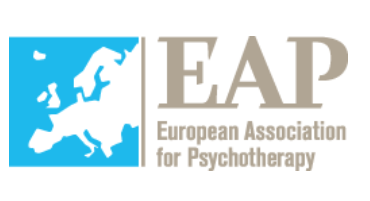EAP information | COVID-19

SPECIAL INFORMATION by the Secretary General of EAP
Dear friends, dear colleagues,
We all are living in very unusual times – even during the war there was no restrictions of social gatherings of such drastic extent. We are one of the most negatively affected professions in this advent of isolation.
However, we know probably better than anybody, how the contact and relationship is essential in the times of crisis and uncertainty. Finally, all our attempts are addressed to make people feel better with others.
Now we are in very special situation. Direct personal contact in most European countries is discouraged, or even banned. Even without these official measures we understand, that this is a way to protect many lives.
So the only way still to help our clients/patients is a work using internet or phone. We understand, that in recent years this type of work has grown in popularity, but still remained a minority in our practice. Now it must become an obligatory way of work, an quite intense.
So the EAP is proposing a draft document on this kind of therapy, prepared mainly by our former EAP president Adrian Rhodes, and a collection of regulatory documents on this matter from different European countries. We hope it will help you to feel a little bit more competent working in this approach. During the short time we are planning to enable some “FAQ” function on our website concerning different issues in these crisis times, so questions on internet therapy may also get attention and answers.
Keep healthy, keep calm, keep together!
Eugenijus Laurinaitis,
Secretary General of EAP
Interim Advice for Conducting Psychotherapy Online
Dear Colleagues,
The populations of Europe and European psychotherapists are facing an unprecedented situation with the rapid spread of the Coronavirus (or Covid-19) across Europe. We are increasingly asked to “self-isolate” if infected but also to avoid direct contact with others as well as avoiding “unnecessary” travel.
This is the first time in history that psychotherapy practice is being restricted in such profound ways and we therefore find ourselves in uncharted waters. As Psychotherapists, we work with many vulnerable clients or patients whom we should not easily abandon with their problems of living, problems that may become further exacerbated by challenges arising from the Coronavirus situation in some cases.
Fortunately, the relatively recent development of “online psychotherapy” provides possibilities to continue working and supporting at least those clients/patients able and willing to engage with these new media technologies. Some of you already work online as part of your psychotherapy practice. For others, it may be a new challenge to master both the technology and the particularities of psychological spaces associated with meeting online.
In recent years, online psychotherapy has evolved as a distinct variation of psychotherapy, or perhaps even as new modality, which has rules, etiquette and techniques alongside possibilities, opportunities as well as challenges and hidden dangers. Unfortunately, good practice guidance and online psychotherapy education are still not widely available across Europe. EAP has therefore decided to publish the “work in progress” already done by EAP under the leadership of our previous EAP President Adrian Rhodes in the form of an “Interim Advice for Conducting Psychotherapy Online”. We will continue to develop this guidance document and associated electronic library, but in the meantime, this interim advise will provide much needed information and guidance to the European psychotherapy community.
Please find the EAP Online Guidance (pdf) here.
In this special newsletter, we also include a collection of practical tips and ideas to consider which we hope you will find helpful:
Some online therapy tips and ideas (pdf)
We are currently exploring the technical issues associated with an online “question and answer” forum or blog to support exchanging ideas and best practice amongst EAP affiliated psychotherapists. We are hopeful that we will be able to set something up soon. We also seek to provide links to short online training modules that can support online psychotherapy practice. Please consult the EAP website for further updates and information on these matters: https://www.europsyche.org
Tom Warnecke,
March 2020
